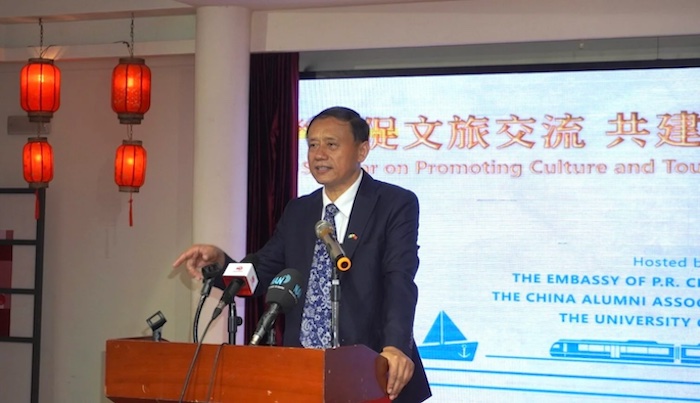The Embassy of the People’s Republic of China in Abuja has reiterated its commitment to promoting tourism and cultural exchanges with Nigeria within the Belt and Road Initiative (BRI) to strengthen bilateral relations between the two countries.
The embassy made the pledge over the weekend at a seminar on “Promoting Cultural and Tourism Exchanges in Belt and Road Cooperation”, co-organised by the Chinese Embassy, the China Alumni Association of Nigeria and the University of Abuja.
Li Xuda, cultural counselor at the Chinese Embassy, said the embassy has always attached importance to promoting people-to-people ties between China and Nigeria as cultural and tourism exchanges play a special and important role in social progress and national development.
Li added that the joint construction of the Belt and Road Initiative mainly focuses on “five cooperation priorities”, namely policy coordination, facility connectivity, smooth trade, financial integration and people-to-people ties.
“People-to-people ties, one of the five cooperation priorities of the Belt and Road, go beyond cultural and tourism exchanges and aim to respect and build common understanding among countries and regions within one big family,” he said.
“Both China and Nigeria are cultural giants with magnificent ancient civilisations and rich tourism resources.
“Since the past six years, China and Nigeria have become close partners in jointly building the BRI, and bilateral exchanges have become more in-depth and practical.
“I am confident that at this new stage of high-quality joint construction of the Belt and Road, culture and tourism between the two countries will be further promoted and some of the cultural gaps and barriers to exchanges will be bridged,” he said.
Meanwhile, the Executive Director/CEO, National Institute of Cultural Orientation (NICO), Otunba Biodun Ajiboye, expressed gratitude to the Chinese government for its continued support to the development of Nigeria’s culture and tourism sector.
He noted that Nigeria is rich in natural and cultural attractions, ranging from the spectacular scenery of its national parks to historic monuments and vibrant cities that tell the story of the country’s history.
“We therefore need to leverage the BRI to strengthen tourism infrastructure, promote sustainable tourism practices and create unique cultural experiences for our visitors,” he said.
“In doing so, we can attract more tourists, generate revenue and create jobs while preserving and celebrating our cultural heritage.”
“We will continue to work closely with our Chinese counterparts to develop joint projects, exchange programs and cooperative initiatives that will bring mutual benefit to both our countries.”
The Belt and Road Initiative (BRI) is a global infrastructure development strategy adopted by the Chinese government in 2013 that involves investments in more than 150 countries and international organizations.
Michael Olugbode
follow me:

